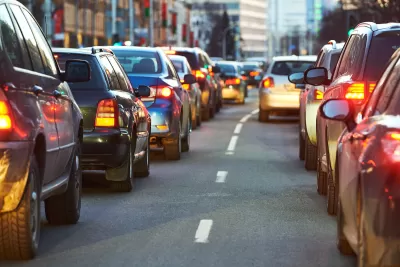The Rocky Mountain Institute's new Smarter MODES Calculator quantifies economic, social and environmental benefits provided by shifts from automobile travel to more resource-efficient modes. This includes benefits that are often overlooked or undervalued in conventional planning.

The Rocky Mountain Institute's (RMI) new Smarter MODES Calculator is a spreadsheet model that quantifies economic, social and environmental benefits provided by shifts automobile to more resource-efficient modes. It estimates, for example, the benefits provided by a 20 percent reduction in VMT for a specific U.S. state, and can be adjusted to test various perspectives, conditions and assumptions. I was a consultant on this project.
The analysis includes consumer savings and affordability (savings to lower-income households), reduce congestion, health benefits from active transportation, avoided crash fatalities, plus emission reductions.
This can help practitioners, policy makers and the general public better understand the full benefits of multimodal planning, transportation demand management, and Smart Growth policies that create more multimodal communities where people can drive less and rely more on non-auto modes. Many jurisdictions have VMT reduction targets; these policies are often presented primarily as emission reduction strategies but they can also be justified on fairness grounds (so non-drivers receive their share of infrastructure investments), and for affordability, cost efficiency, health, safety and community livability sake.

Planetizen Federal Action Tracker
A weekly monitor of how Trump’s orders and actions are impacting planners and planning in America.

Map: Where Senate Republicans Want to Sell Your Public Lands
For public land advocates, the Senate Republicans’ proposal to sell millions of acres of public land in the West is “the biggest fight of their careers.”

Restaurant Patios Were a Pandemic Win — Why Were They so Hard to Keep?
Social distancing requirements and changes in travel patterns prompted cities to pilot new uses for street and sidewalk space. Then it got complicated.

Maui's Vacation Rental Debate Turns Ugly
Verbal attacks, misinformation campaigns and fistfights plague a high-stakes debate to convert thousands of vacation rentals into long-term housing.

San Francisco Suspends Traffic Calming Amidst Record Deaths
Citing “a challenging fiscal landscape,” the city will cease the program on the heels of 42 traffic deaths, including 24 pedestrians.

California Homeless Arrests, Citations Spike After Ruling
An investigation reveals that anti-homeless actions increased up to 500% after Grants Pass v. Johnson — even in cities claiming no policy change.
Urban Design for Planners 1: Software Tools
This six-course series explores essential urban design concepts using open source software and equips planners with the tools they need to participate fully in the urban design process.
Planning for Universal Design
Learn the tools for implementing Universal Design in planning regulations.
Heyer Gruel & Associates PA
JM Goldson LLC
Custer County Colorado
City of Camden Redevelopment Agency
City of Astoria
Transportation Research & Education Center (TREC) at Portland State University
Camden Redevelopment Agency
City of Claremont
Municipality of Princeton (NJ)





























